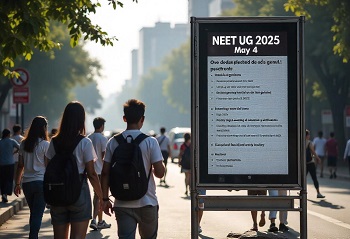Neurodivergent children, including those with autism, ADHD, dyslexia, and other conditions, often face unique challenges in traditional educational environments.
Conventional teaching methods frequently fail to address their diverse learning needs. However, advancements in artificial intelligence (AI) are now reshaping how educators and parents can support these children.
By leveraging AI, we can develop personalized learning tools, improve engagement, and provide tailored support for neurodivergent learners.
The Challenges Faced by Neurodivergent Children in Traditional Education
- Lack of Personalized Learning: Neurodivergent children often benefit from customized teaching approaches, yet traditional classrooms typically rely on one-size-fits-all methods. This gap can lead to frustration, disengagement, and a lack of academic progress.
- Resource Constraints: Educators and therapists face significant challenges in creating personalized materials, as these are resource-intensive and require specialized expertise. According to research, 70% of neurodivergent children excel when information is presented visually, but many schools lack the tools or time to develop such resources.
- Limited Technological Integration: Despite the potential of technology, many educational institutions still rely on outdated methods that fail to address the unique requirements of neurodivergent learners.
How AI is Bridging the Gap
Artificial intelligence is emerging as a powerful tool to address the challenges faced by neurodivergent children. Here’s how AI is making a difference:
1. Personalized Learning Plans
AI-driven platforms can analyze a child’s learning style, strengths, and challenges to create customized educational plans. These tools adapt in real-time based on the child’s progress, ensuring that they remain engaged and motivated.
- Example: Platforms like Ella streamline the creation of individualized visual supports, helping educators save time while delivering effective learning materials.
2. Enhanced Visual Learning Tools
With visual learning being a key preference for many neurodivergent children, AI-powered tools can generate interactive, engaging content tailored to their needs. These tools include dynamic charts, videos, and animations that simplify complex concepts.
- AI-Powered Applications: Apps designed for visual learners use AI to transform textual information into engaging visual formats, enhancing comprehension and retention.
3. Real-Time Feedback and Assessment
AI systems provide instant feedback on assignments, quizzes, and other activities. This feature helps neurodivergent students understand their mistakes immediately, allowing them to improve without delay.
- Impact: Real-time assessment ensures that students stay on track and feel supported throughout their learning journey.
4. Speech and Language Assistance
Many neurodivergent children face difficulties with communication. AI-powered speech recognition tools and language processing applications can assist in developing communication skills.
- Examples:
- AI speech-to-text software for nonverbal students.
- Language development tools that adapt based on the child’s progress.
5. Behavioral and Emotional Support
AI-driven tools can monitor a child’s emotional and behavioral patterns, providing insights to parents and educators. For instance, if a child exhibits signs of stress or frustration, the system can recommend strategies to alleviate these feelings.
- Applications:
- Wearable devices that track emotional cues.
- Apps that suggest calming activities based on real-time behavior analysis.
The Role of Platforms like Ella in Supporting Neurodivergent Learners
Ella, a platform co-founded by Jaivin Anzalota, exemplifies how AI can transform education for neurodivergent children. By automating the creation of individualized visual materials, Ella empowers educators and parents to deliver high-quality, personalized support without extensive time or effort.
Features of Ella:
- User-Friendly Interface: Simplifies the creation of visual aids.
- Customizable Templates: Offers a wide range of pre-designed templates that can be tailored to individual needs.
- Collaborative Tools: Facilitates communication between educators, therapists, and parents, ensuring a unified approach to the child’s development.
The Benefits of AI-Driven Education for Neurodivergent Children
- Improved Engagement: AI tools make learning more interactive and enjoyable, reducing feelings of boredom or frustration.
- Increased Accessibility: By catering to various learning styles, AI ensures that all children have access to quality education.
- Empowered Educators and Parents: AI reduces the workload of educators and parents, allowing them to focus on providing emotional and social support.
- Better Academic Outcomes: Tailored learning experiences help neurodivergent children achieve their full potential, boosting their confidence and academic success.
Overcoming Challenges in AI Integration
Despite its potential, the integration of AI in education comes with challenges:
- Cost Barriers: High costs can limit access to advanced AI tools, especially in underfunded schools.
- Training Needs: Educators require training to effectively use AI-driven platforms.
- Ethical Considerations: Ensuring data privacy and avoiding bias in AI systems are critical concerns.
The Future of AI in Education
As technology continues to evolve, AI is poised to play an even more significant role in supporting neurodivergent children. Key advancements on the horizon include:
- AI-Powered Virtual Classrooms: Fully immersive environments tailored to individual learning needs.
- Advanced Emotion Recognition: Tools that detect subtle emotional shifts, enabling proactive support.
- Integration with Augmented Reality (AR): Combining AI with AR for hands-on, experiential learning opportunities.
Conclusion
AI is revolutionizing education for neurodivergent children, providing tools that address their unique challenges while empowering educators and parents.
Platforms like Ella demonstrate the transformative power of technology in creating inclusive learning environments. By embracing AI, we can ensure that every child, regardless of their neurodiversity, has the opportunity to thrive academically and personally.
For more updates on transformative technologies and education innovations, stay tuned to Khabrain Hindustan.





